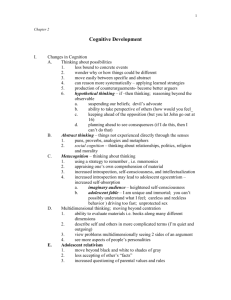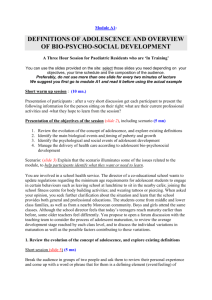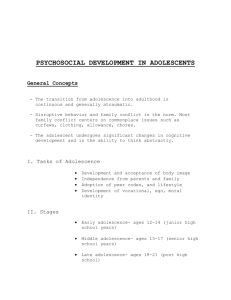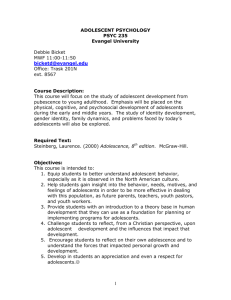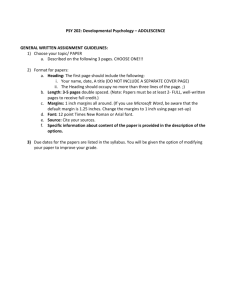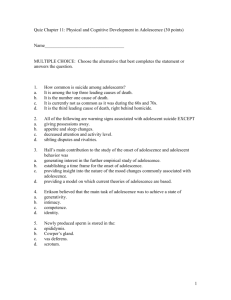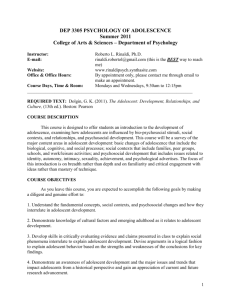PSY 216- Psychology of Adolescence
advertisement
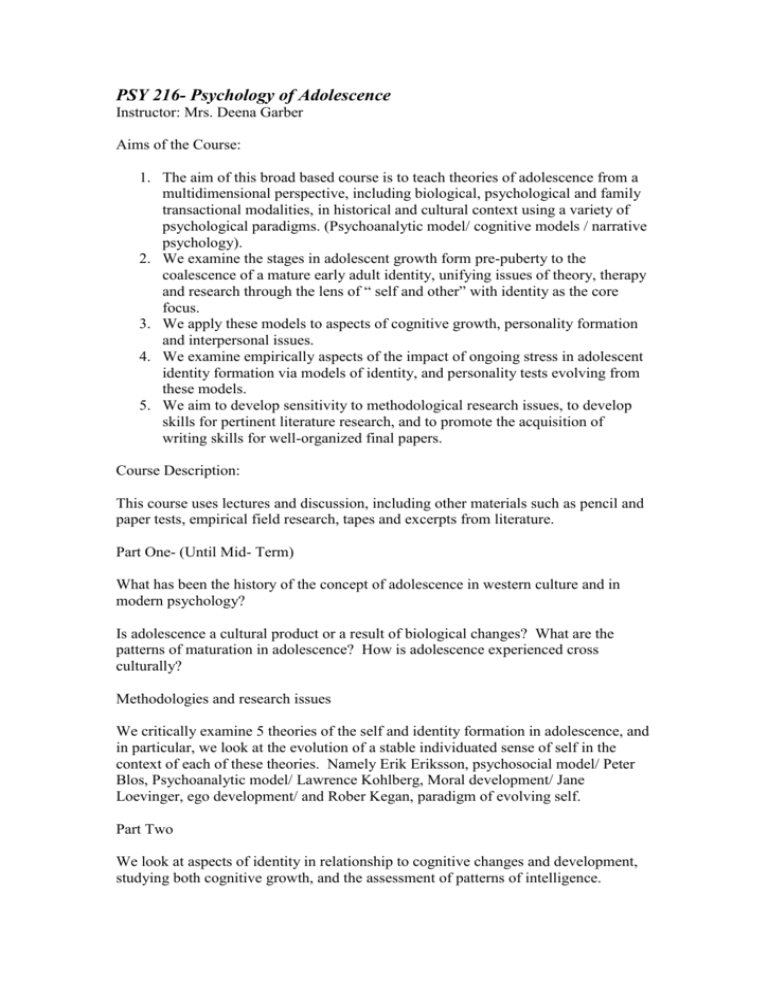
PSY 216- Psychology of Adolescence Instructor: Mrs. Deena Garber Aims of the Course: 1. The aim of this broad based course is to teach theories of adolescence from a multidimensional perspective, including biological, psychological and family transactional modalities, in historical and cultural context using a variety of psychological paradigms. (Psychoanalytic model/ cognitive models / narrative psychology). 2. We examine the stages in adolescent growth form pre-puberty to the coalescence of a mature early adult identity, unifying issues of theory, therapy and research through the lens of “ self and other” with identity as the core focus. 3. We apply these models to aspects of cognitive growth, personality formation and interpersonal issues. 4. We examine empirically aspects of the impact of ongoing stress in adolescent identity formation via models of identity, and personality tests evolving from these models. 5. We aim to develop sensitivity to methodological research issues, to develop skills for pertinent literature research, and to promote the acquisition of writing skills for well-organized final papers. Course Description: This course uses lectures and discussion, including other materials such as pencil and paper tests, empirical field research, tapes and excerpts from literature. Part One- (Until Mid- Term) What has been the history of the concept of adolescence in western culture and in modern psychology? Is adolescence a cultural product or a result of biological changes? What are the patterns of maturation in adolescence? How is adolescence experienced cross culturally? Methodologies and research issues We critically examine 5 theories of the self and identity formation in adolescence, and in particular, we look at the evolution of a stable individuated sense of self in the context of each of these theories. Namely Erik Eriksson, psychosocial model/ Peter Blos, Psychoanalytic model/ Lawrence Kohlberg, Moral development/ Jane Loevinger, ego development/ and Rober Kegan, paradigm of evolving self. Part Two We look at aspects of identity in relationship to cognitive changes and development, studying both cognitive growth, and the assessment of patterns of intelligence. We study issues in moral development and their critique. We critically study peer relations in adolescence, and family process, in the context to the formation of identity with special reference to cultural changes and their effect on the adolescent. We examine the implications of a multi generational, family transactional model for understanding issues of separation and individuation in particular and models of adolescent identity formation in general. We apply the transactional model of Helm Stierlin to various other issues of adolescence. We consider in particular aspects of religious identity formation in relationship to models of identity, and empirically examine aspects of the impact of trauma on the developing adolescent with special reference to psychosocial trauma in the Israeli reality. We examine selected aspects of adolescent psychopathology, particularly the issues of adolescent identity crisis and adolescent depression. Text: Identity in Adolescence- the balance between self and other Jane Kroger 2nd edition
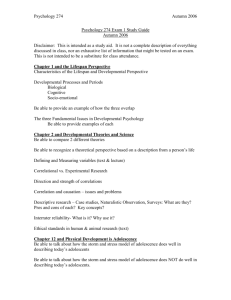
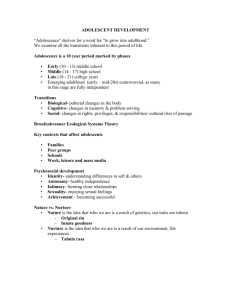
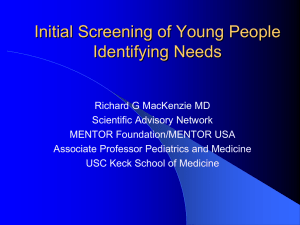

![Adolescence in 20th Century Literature and Culture [DOCX 16.08KB]](http://s3.studylib.net/store/data/006806148_1-4fb552dd69cbfa44b08b2f880802b1fe-300x300.png)
